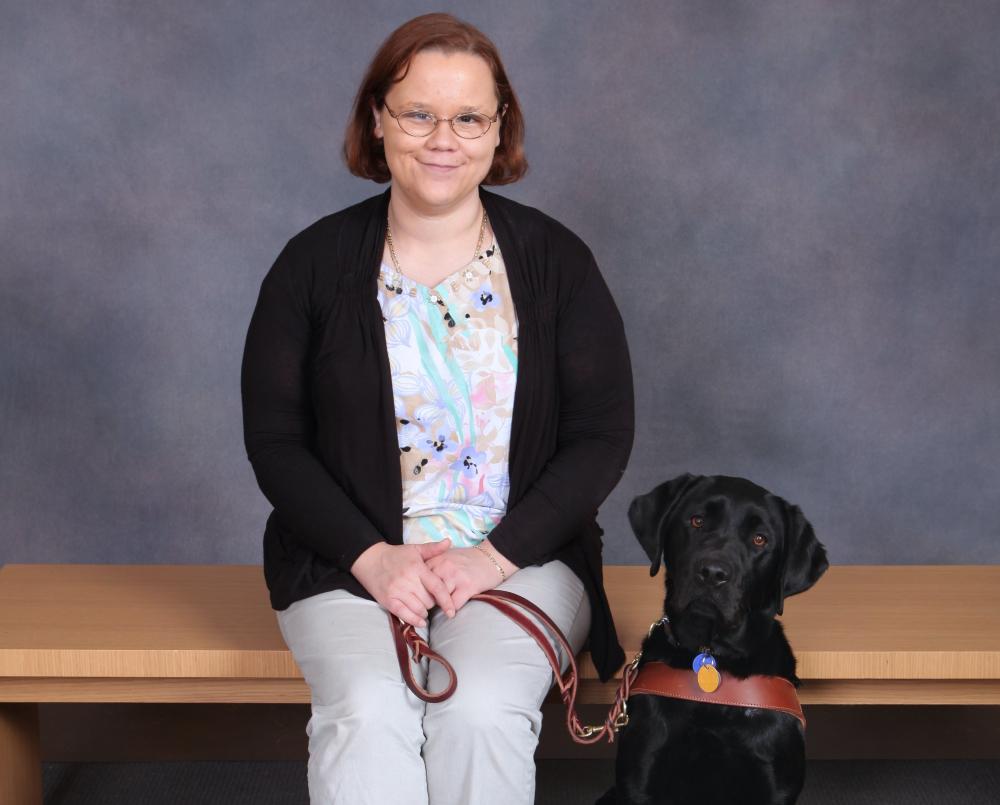Wareham High graduate: ‘Blindness is not a death sentence’
It was Katie Crocker’s time in Wareham that helped her “accept the role blindness plays” in her life.
Crocker, born in Connecticut, has been legally blind her entire life due to a genetic condition called cone-rod dystrophy. She moved to Wareham when she was 10 years old, and graduated from Wareham High School in 2004.
“As a kid, I was not comfortable about my vision loss, and often tried to hide it,” she said. “A few key experiences in high schools helped this, and started me on the journey to self-acceptance and taking pride in who I am.”
While a student at Bridgewater State University, she started to travel across Massachusetts with her service dog.
“These experiences taught me I have the ability to have a successful and independent life,” she said. “Blindness is not a death sentence. While going blind... can be a traumatic experience, there are more ways now than ever to adapt and reclaim your happiness and independence.”
Crocker is currently a program coordinator at the Polus Center for Social and Economic Development in Petersham, which offers career development and life skills training for blind and low-vision people.
Crocker graduated from the American Foundation for the Blind’s Blind Leaders Development Program on Tuesday, May 2. The Blind Leaders Development Program was launched in 2020 in order to provide leadership opportunities to blind and low-vision people who are just starting out in their careers.
“My main takeaway from the program is that a great leader can come from anywhere,” she said. “Good leaders are built, not born.”
The program provided leadership training, networking opportunities and other career skills. Each student was paired with a blind or low-vision mentor who offered advice.
Crocker plans to attend graduate school to become a vision rehabilitation therapist like her mentor, Heather Tuck. She wants to empower other blind and low-vision people seeking independence and successful careers in the face of discrimination and misconceptions.
“Employers are often under the false impression that a blind employee does not have as much to offer as their sighted peers,” she said. “I’ve experienced this firsthand, and much of my professional work is dedicated to challenging those stereotypes.”
















